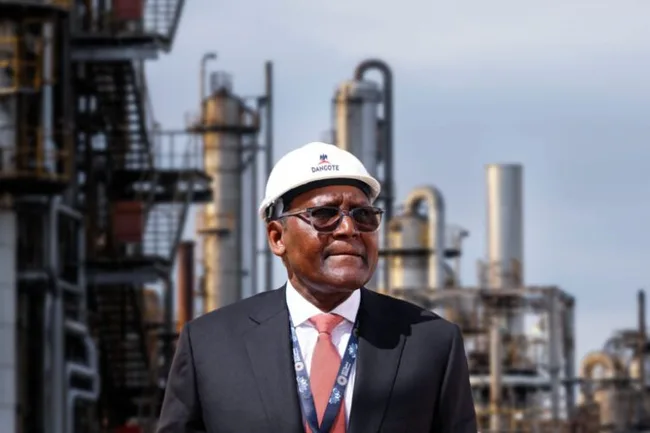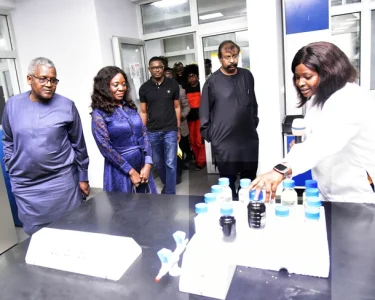Contributions of Dangote Refinery to Nigeria’s economy and its role in revitalizing the private sector exciting Ogun State Chamber of Commerce, Industry, Mines, and Agriculture (OGUNCCIMA)
OGUNCCIMA is also happy that this flagship industrial project has not only reshaped the country’s energy landscape but has also created opportunities for private enterprises and driven sustainable economic growth.
Speaking on behalf of OGUNCCIMA, it’s President Lion Niyi Oshiyemi, lauded the refinery’s achievements, emphasizing its transformative impact on key economic sectors.
“The Dangote Refinery is a game-changer for Nigeria’s economy. With a capacity to refine 650,000 barrels of crude oil daily, it has reduced Nigeria’s reliance on imported petroleum products, conserved foreign exchange, and fortified our energy security. This milestone reinforces the critical role the private sector plays in national development,” he stated.
The impact of Dangote Refinery on the private sector is profound. By creating thousands of direct and indirect jobs, the refinery has stimulated economic activities across multiple industries. From manufacturing to logistics, the project has provided businesses with opportunities to grow and innovate.
“The refinery’s operations have created employment for Nigerians at all levels while fostering technology transfer and skills acquisition. This has strengthened local businesses and equipped them with the tools to compete in domestic and global markets,” Oshiyemi noted.
The emphasis on local content has been a cornerstone of Dangote Refinery’s strategy. By sourcing materials locally and partnering with indigenous companies, the refinery has supported the growth of Nigerian enterprises and encouraged investments in infrastructure, engineering, and technology.
The ripple effects of the Dangote Refinery extend beyond the energy sector. Its presence has catalyzed industrialization by attracting investments in related sectors such as petrochemicals, manufacturing, and transportation. This multiplier effect has significantly expanded Nigeria’s industrial base and enhanced the nation’s economic competitiveness.
OGUNCCIMA also highlighted the refinery’s contributions to addressing Nigeria’s balance of trade challenges. By producing refined petroleum products domestically, the refinery has reduced the need for costly imports while positioning Nigeria as a potential exporter of refined products within the African continent.
The impact of Dangote Refinery goes beyond Nigeria’s borders, as it addresses Africa’s critical energy deficits and trade imbalances. By meeting the energy demands of neighboring countries and promoting intra-African trade, the refinery aligns with the objectives of the African Continental Free Trade Area (AfCFTA).
“This refinery is a shining example of what can be achieved through visionary leadership and investment in strategic sectors. It demonstrates Africa’s potential to compete globally and foster regional integration,” Oshiyemi remarked.
In addition to its economic contributions, Dangote Refinery has maintained a strong commitment to corporate social responsibility. The Dangote Group’s investments in education, healthcare, and infrastructure have improved the quality of life for many Nigerians and strengthened community resilience.
“Dangote Refinery exemplifies the role of private sector enterprises in driving social progress alongside economic development. Its initiatives in healthcare and education are building a brighter future for Nigerians,” Oshiyemi added.
OGUNCCIMA urged stakeholders across public and private sectors to emulate the Dangote Refinery’s innovative approach to development. By fostering partnerships and investing in transformative projects, Nigeria can achieve sustainable economic growth and reduce its reliance on external resources.
“This refinery stands as a model for what is possible when the private sector leads with vision and commitment. We call on all stakeholders to collaborate and replicate such success stories to build a resilient, self-reliant, and prosperous Nigeria,” Oshiyemi concluded.





